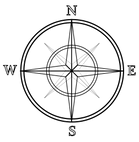The Most Influential
People in History

Kurt Friedrich Gödel
/ GEHR-dehl /
1906–1978
Austrian-Born American Mathematician
Mathematics Ranking 39th of 46

1
Photo of Kurt Gödel
Kurt Friedrich Gödel is best known for his proof of “Godel’s Incompleteness Theorem.”(1) In 1931 he published these results about axiomatic systems, showing in any axiomatic mathematical system there are propositions that cannot be proved or disproved within the axioms of the system. In particular the consistency of the axioms cannot be proved. This ended a hundred years of attempts to establish axioms which would put the whole of mathematics on an axiomatic basis. One major attempt had been by Bertrand Russell and Alfred Whitehead with Principia Mathematica (1910-13). Another was Hilbert’s formalism which was dealt a severe blow by Gödel’s results. The theorem did not destroy the fundamental idea of formalism, but it did demonstrate that any system would have to be more comprehensive than that envisaged by Hilbert. Gödel’s results were a landmark in 20th century mathematics, showing that mathematics is not a finished object, as had been believed. It also implies that a computer can never be programmed to answer all mathematical questions.
After settling in the United States, Gödel again produced a work of the greatest importance. His masterpiece, Consistency of the axiom of choice and of the generalized continuum-hypothesis with the axioms of set theory (1940) is a classic of modern mathematics. In this, he proved that if an axiomatic system of set theory of the type proposed by Russell and Whitehead in Principia Mathematica is consistent, then it will remain so when the axiom of choice and the generalized continuum-hypothesis are added to the system. This did not prove that these axioms were independent of the other axioms of set theory, but when it was finally established by Cohen in 1963 he built on these ideas of Gödel.
Footnotes:
(1) Judy Pearsall and Bill Trumble (editors), The Oxford Encyclopedic English Dictionary (New York, 1996), p. 598.